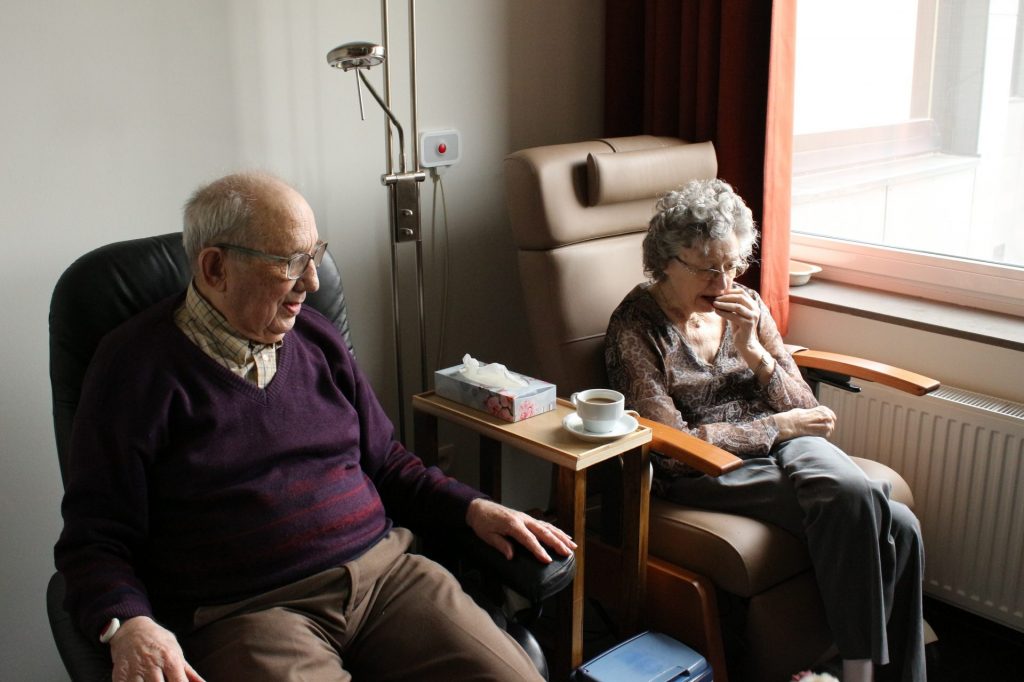The colleagues stress that ‘there is an urgent need for greater joint working across health and social care to support care homes with the clinical aspects of care during this pandemic’. They said:
‘Care homes provide care for the most vulnerable adults in our population and are likely to be disproportionately affected by COVID-19. Lack of systematic reporting of deaths in the community, including in care homes, has led to a lack of evidence and clarity about the magnitude of the problem but emerging international evidence and feedback from the social care sector would suggest that it is both vast and significant, with around half of all COVID-19 deaths being from care homes residents in reporting countries.
‘Unlike health, social care is a fragmented system and care providers face a perfect storm of challenges around infection management and control, including; lack of testing (to date), shortages of PPE, confusing and conflicting government guidance and staff shortages. There is also an inherent conflict between care homes being both a place of ‘care’ and a place of ‘home’. Many care homes across the UK are adapted from existing housing stock, meaning residents share communal lounges, bathrooms and WCs. Residents’ rooms are encouraged to be homely, not clinical, and as such do not resemble clinical settings in which symptomatic residents can be isolated in ‘zones’ and non-symptomatic residents shielded from infection. Anecdotal evidence from providers suggests that many have tried to protect residents by stopping visitors and reducing contact with the outside world, yet they are simultaneously being asked to accept patients from the community and hospitals who might be a- or pre-symptomatic.
‘There is an urgent need for greater joint working across health and social care to support care homes with the clinical aspects of care during this pandemic. Government guidance is being constantly updated, with policies being open to interpretation by service providers, leading to serious health and safety concerns amongst the social care workforce. However, there is also a need to support residents’ social and emotional needs.
‘Residents’ social lives are already much smaller than most, contained to the facility in which they live and dependent on the outside world coming in. Some lack in-room entertainment, encouraging residents to spend time in communal areas instead. Now restricted to often very small bedrooms, such facilities are desperately needed and there have been pleas for donations of televisions and radios to keep residents’ entertained and connected to the outside world. Digital capacity for communication is largely unknown and likely to vary enormously between providers. Many residents will require support and there have been reports of phone calls being timed because staff have only limited capacity to support each resident with a call. Work is underway across the NIHR Applied Research Collaborations (ARCs) to coordinate research efforts and support the social care sector by providing rapid, evidence based guidance that the care sector desperately needs to meet the unique challenges faced during this global pandemic.’
Ann-Marie Towers is Senior Research Fellow at CHSS. She is a collaborator for the NIHR Research Design Service South East, a panel member for NIHR Research for Patient Benefit (South East) and leads a programme of work to develop, test and support the Adult Social Care Outcomes Toolkit (ASCOT).
Dr Rasa Mikelyte is a Research Associate at CHSS. Her principal research interests are in dementia care and policy, with her doctoral research looking into improving mealtimes for people with dementia, their relatives and staff in NHS Continuing Care facilities.
Dr Wenjing Zhang is a Research Assistant at CHSS. Her research expertise and interests focus on health and social care, ageing and social policy.

